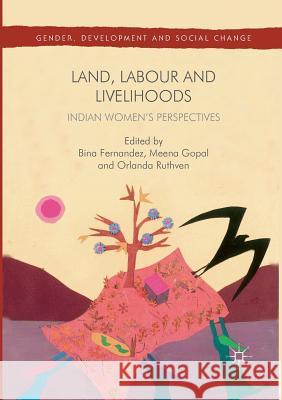Land, Labour and Livelihoods: Indian Women's Perspectives » książka
topmenu
Land, Labour and Livelihoods: Indian Women's Perspectives
ISBN-13: 9783319822044 / Angielski / Miękka / 2018 / 352 str.
Kategorie BISAC:
Wydawca:
Palgrave MacMillan
Seria wydawnicza:
Język:
Angielski
ISBN-13:
9783319822044
Rok wydania:
2018
Wydanie:
Softcover Repri
Ilość stron:
352
Waga:
0.44 kg
Wymiary:
21.01 x 14.81 x 1.96
Oprawa:
Miękka
Wolumenów:
01
Dodatkowe informacje:
Wydanie ilustrowane











